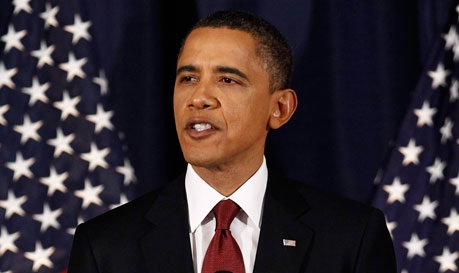Virginia Could Determine the Presidential Election and Control of The US Senate in 2012

Before 2008, Virginia had not voted for a Democrat to be president since 1964. The state is seen as a critical swing state in 2012 and there can be some useful insights gleaned from the 2008 exit polls and by reflecting on the changes that have happened since then. Virginia has differences from the rest of the United States in several respects:
- In 2008, Virginia had a greater share of African-Americans but a smaller proportion of Latinos. In general, each group was slightly more conservative than the nation at large.
- Independents tend to be much more closely split in Virginia (Obama had a 1 point margin versus an 8 point margin nationwide)
- 13% of Virginia voters were first time voters versus 11% nationwide – they tended to favor Obama (28 point margin), but not as much as the nation at large (39 point margin)
- A major difference was the campaigns contacting voters: 50% of voters said the Obama campaign contacted them (26% nationwide) versus 38% of the McCain campaign (18% nationwide). In Virginia, when both campaigns contacted a voter, there was a 15 percentage point margin of voting Republican (4 percentage points nationwide).
There were not any major differences on:
- Important issues such as the economy, energy policy, terrorism, or health care.
- Ideology – similar proportion of liberals, moderates, and conservatives and vote choice
- Education and college attendance – with only slightly fewer Virginians without some college
Political elections since 2008:
- Bob McDonnell (R) had no trouble defeating Creigh Deeds (D) in 2009. McDonnell has a healthy job approval rating (53% approval, 30% disapproval) as of early June 2012.
- 6 of the 11 House seats were Democratic, with half of these lost in the 2010 elections. These tended to be by fairly close margins (3.8, 4.8, and 10.6) which may be hard to hold for a freshman congressman to hold in the absence of a “wave” election.
- Republicans won control of the State Senate in 2011 (though on a 20-20 split). The State House had been in Republican hands for over a decade, and is about two-thirds Republican.
The data above show that while Virginia is a microcosm of the United States, it tends to lean in Republican favor in elections since 2008. However, with the Democratic Convention happening in neighboring North Carolina and an open Senate seat being fought over between former Virginia governors Tim Kaine (Democrat, 2006-2010) and George Allen (Republican, 1994-1998), there will be a lot of focus on the state from the Obama and Romney campaigns.
Recent polls have had small but consistent leads for both Obama and Kaine in a state that could determine the presidential election and control of the Senate. Major factors such as the economy and recent Supreme Court decision on health care will have a still-unknown effect on the outcome. It may be important to remember that in 2008, roughly two out of five voters did not decide who to vote for until after the major party conventions in August and September.



